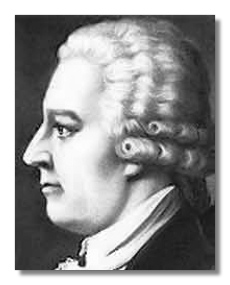Johann Schobert
Johann Schobert (c. 1720 – 28 August 1767) was a Silesian composer and harpsichordist who was active in Paris during the Classical period.
Early Life and Career[edit | edit source]
Schobert was born in Silesia, a region that is now part of modern-day Poland. Little is known about his early life, but he eventually moved to Paris, where he became a prominent figure in the musical scene.
Musical Contributions[edit | edit source]
Schobert is best known for his compositions for the harpsichord, which were highly regarded for their expressive qualities and technical demands. His works include numerous sonatas and concertos, which were influential in the development of the Classical style.
Schobert's music was admired by many of his contemporaries, including Wolfgang Amadeus Mozart, who arranged some of Schobert's sonatas for his own performances.
Death[edit | edit source]
Johann Schobert died in Paris on 28 August 1767 under tragic circumstances. He and several members of his family died after consuming poisonous mushrooms, which they had mistaken for edible ones.
Legacy[edit | edit source]
Despite his untimely death, Schobert's music continued to be performed and appreciated. His compositions are considered an important part of the transition from the Baroque to the Classical period in music.
See Also[edit | edit source]
References[edit | edit source]
- Daniel,
Music in European Capitals: The Galant Style, 1720-1780, Norton, 2003, ISBN 978-0-393-04825-9,
- Zaslaw, Neal,
Mozart's Piano Concertos: Text, Context, Interpretation, Journal of Musicology, 1994, Vol. 12(Issue: 3), pp. 345-367,
External Links[edit | edit source]
Search WikiMD
Ad.Tired of being Overweight? Try W8MD's physician weight loss program.
Semaglutide (Ozempic / Wegovy and Tirzepatide (Mounjaro / Zepbound) available.
Advertise on WikiMD
|
WikiMD's Wellness Encyclopedia |
| Let Food Be Thy Medicine Medicine Thy Food - Hippocrates |
Translate this page: - East Asian
中文,
日本,
한국어,
South Asian
हिन्दी,
தமிழ்,
తెలుగు,
Urdu,
ಕನ್ನಡ,
Southeast Asian
Indonesian,
Vietnamese,
Thai,
မြန်မာဘာသာ,
বাংলা
European
español,
Deutsch,
français,
Greek,
português do Brasil,
polski,
română,
русский,
Nederlands,
norsk,
svenska,
suomi,
Italian
Middle Eastern & African
عربى,
Turkish,
Persian,
Hebrew,
Afrikaans,
isiZulu,
Kiswahili,
Other
Bulgarian,
Hungarian,
Czech,
Swedish,
മലയാളം,
मराठी,
ਪੰਜਾਬੀ,
ગુજરાતી,
Portuguese,
Ukrainian
Medical Disclaimer: WikiMD is not a substitute for professional medical advice. The information on WikiMD is provided as an information resource only, may be incorrect, outdated or misleading, and is not to be used or relied on for any diagnostic or treatment purposes. Please consult your health care provider before making any healthcare decisions or for guidance about a specific medical condition. WikiMD expressly disclaims responsibility, and shall have no liability, for any damages, loss, injury, or liability whatsoever suffered as a result of your reliance on the information contained in this site. By visiting this site you agree to the foregoing terms and conditions, which may from time to time be changed or supplemented by WikiMD. If you do not agree to the foregoing terms and conditions, you should not enter or use this site. See full disclaimer.
Credits:Most images are courtesy of Wikimedia commons, and templates, categories Wikipedia, licensed under CC BY SA or similar.
Contributors: Prab R. Tumpati, MD

